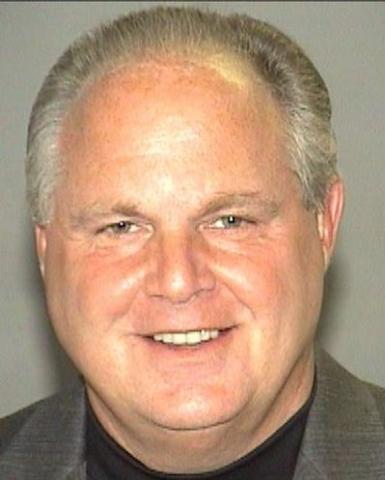For some time, it has been clear that “ClimateGate” has a dramatic meaning for the political right in the U.S. Somehow, “ClimateGate” gave those conservatives who had long been resistant to dealing with global warming a new license to dismiss the problem entirely. As a non-conservative, it’s hard to wrap your mind around how this could have occurred—after all, “ClimateGate” wasn’t a real scandal–but recently, I’ve come up with what may be a better understanding.
The inspiration came from checking in on Rush Limbaugh and noting, in more detail than I usually do, the particular flavor of his dismissiveness. Limbaugh took a call recently from one Michael Hillinger, a New Hampshire resident who had made news by asking GOP candidate Mitt Romney a question about whether he accepts the science of climate change (Romney said yes). Based on these statements, Limbaugh bade “Bye By Nomination” to Romney; he also had this “exchange” with Hillinger:
CALLER: …First of all, I wanted to specify the difference between policy and science… And I specifically quoted from a 2010 National Academy of Sciences report, and two quotes here. The first is, they concluded — and, by the way, the National Academy of Sciences, as you know, is considered the Supreme Court of science in this country. It was founded in 1863 by Abraham Lincoln, and it’s charged with giving the Congress unbiased scientific information. Now, their conclusion was, quote, “A strong, credible body of scientific evidence shows that climate change is occurring, is caused largely by human activities, and poses significant risks for a broad range of human and natural systems.”
RUSH: Then they’ve lost all credibility. It’s a bogus claim.
CALLER: Let me go on. They then went on to say, “Some scientific conclusions or theories have been so thoroughly examined and tested and supported by so many independent observations and results, that their likelihood of subsequently being found wrong is vanishingly small. This is the case for the conclusions that the Earth system is warming and that much of this warming is very likely due to human activities. And then I asked my question, so that’s the context of the question. Your response was that there was evidence even in the last year that established this whole premise of manmade global warming is a hoax.
RUSH: Right.
CALLER: I don’t know where you’re getting the hoax from, sir. I mean I’m looking at –
RUSH: It’s called the University of East Anglia in England and the Hadley Climate Center where they basically made it all up, pure and simple. It’s a hoax. There’s nothing true about it.
END TRANSCRIPT
It’s a truly extraordinary and revealing exchange–and you’ll notice that Limbaugh is nothing if not sure he’s right. “Bogus claim,” “hoax,” “there’s nothing true about it”—these are categorical statements, not admitting of shades of gray. And thus no wonder Limbaugh’s exchange with Hillinger went no further–if you’re absolutely sure you’re right about something, then you don’t want to be contradicted or have a big debate about it.
Based on this exchange and, indeed, his own words, it would appear that Limbaugh’s mind is made up–he can’t really consider the possibility of global warming being real and human caused. And how did he (and others who share his mindset) get that way? I sounds like the answer may well be “ClimateGate.”
Remember what things were like before it happened. We were coming off 2007, when Al Gore and the IPCC won the Nobel Peace Prize. We’d just elected President Obama, who was backing cap-and-trade legislation and a Copenhagen deal. The science—and the policy—of global warming had all the momentum behind them. If you didn’t believe that the problem was real and needed to be addressed, you were in a pretty difficult position.
ClimateGate was a true blessing in this regard for climate skeptics and deniers. It furnished a brand new excuse to dismiss it all. It was all a scam! Now of course, I am well aware that the evidence about what happened in “ClimateGate” doesn’t actually support this—that the scientists involved were vindicated, and so forth–but that’s still how ClimateGate was interpreted by many…including, it seems, Limbaugh.
So “ClimateGate” was seized upon—and then, to borrow a term from psychology, after “seizing” “freezing” may have occurred for some. Minds were made up, and no new evidence was admissible—because “ClimateGate” proved it was all a hoax. Thus, whenever global warming comes up, we now hear “ClimateGate” cited endlessly, as a way of shutting down further consideration–as a vindication, even. And it’s completely baffling, if you know (as we all do) that the science of climate is as strong as it ever was, the issue didn’t go away, and “ClimateGate” doesn’t really have any substantive significance.
If I’m right, what it all suggests is that at least until there is some dramatic new event that upends the climate discussion, “ClimateGate” will continue to be cited as the reason that there’s no reason to think further about global warming.
Subscribe to our newsletter
Stay up to date with DeSmog news and alerts






